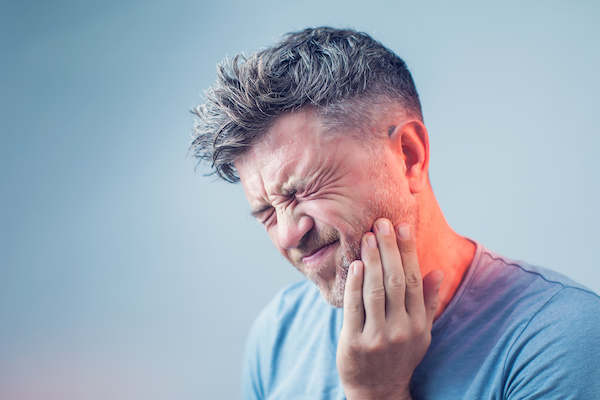
Dental Pain Relief: What You Should Know About Opioids and Other Pain Medications
According to the detailed analysis of results from more than 460 published studies, opioid pain medication is not the most effective, or even the most long lasting, solution for severe dental pain. The School of Dental Medicine at Case Western Reserve University recently conducted a new study that examined the best methods for dental pain relief when patients are suffering from acute dental pain. Here’s what you need to know about the study and how it can relate to your life.
The Study and What it Revealed
The study conducted by The School of Dental Medicine at Case Western Reserve University was shown on the cover of “The Journal of the American Dental Association.” The results showed that opioid drugs aren’t as effective as other medications — namely, non-steroidal anti-inflammatory drugs (NSAIDs) such as ibuprofen. Sometimes, non-steroidal anti-inflammatory drugs are combined with acetaminophen to effectively relieve dental pain.
The study considered not only opioid pain medications and non-steroidal anti-inflammatory drugs but also a wide range of other medications, and the results were quite clear that opioids isn’t the only or even the most effective way to deal with intense dental pain.
The Ultimate Conclusion: Narcotics Should Be a Last Resort
An associate professor at The School of Dental Medicine at Case Western Reserve University explicitly stated that narcotic pain medication should be used only as a final resort when other types of pain medication simply are not effective. There are several reasons for this, beyond the fact that they’re not the best overall dental pain relief option.
Narcotics can be extremely habit-forming, and due to this there are much stronger restrictions on opioid prescriptions than there have ever been in the past. Every day, 115 people die from an opioid overdose, in fact. Most doctors prescribe opioid medications in only very small quantities — typically no more than a seven day supply — even when a patient undergoes major surgery in a hospital setting. Therefore, opioid pain medications are being used less and less in the world of dentistry.
The bottom line is that no dentist wants their patient to leave the office while suffering terrible pain. Sometimes, a small amount of opioid medicine is necessary to accomplish dental pain relief immediately after dental surgery. However, in the days after the dental surgery or procedure the best way to deal with pain is usually non-steroidal anti-inflammatory drugs, possibly combined with acetaminophen.
The Dosages: What Dosage Works?
For most patients, the study revealed that 400 mg of ibuprofen combined with a 1,000 mg dose of acetaminophen works better than any of the opioid medications that were included in the study. This is great news for doctors, dentists, and patients because it shows that it’s not necessary to use heavy-duty opioid medications and risk potential addiction or worse.
The Opioid Epidemic: Why This Offers Hope For the Future
With the opioid epidemic at frightening levels in the United States today, finding a good alternative for serious dental pain relief is absolutely essential. Fortunately, this recent analysis of the studies has clearly shown that there’s a great alternative that really does work with only very minimal side effects.
While a combination of ibuprofen and acetaminophen works quite well for pain — and even for acute dental pain, in most cases — it’s important to be aware that too much acetaminophen consumption can have adverse effects on your liver and possibly other parts of your body.
Therefore, it’s important to work closely with your dentist when deciding what type of pain management to use after you have dental surgery or another dental procedure. Most patients need to use medication for the pain for only a day or two after the surgery or procedure, and by avoiding opioid medication it’s possible to do so without damaging side effects.
The team at Artistic Touch Dentistry provides top quality dental care to Melbourne, Florida patients, so don’t hesitate to get in touch today.

